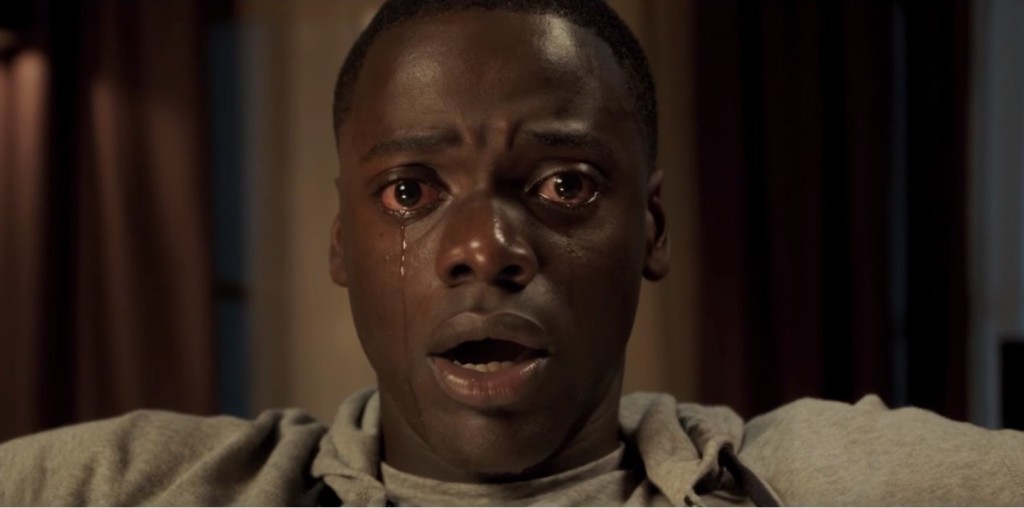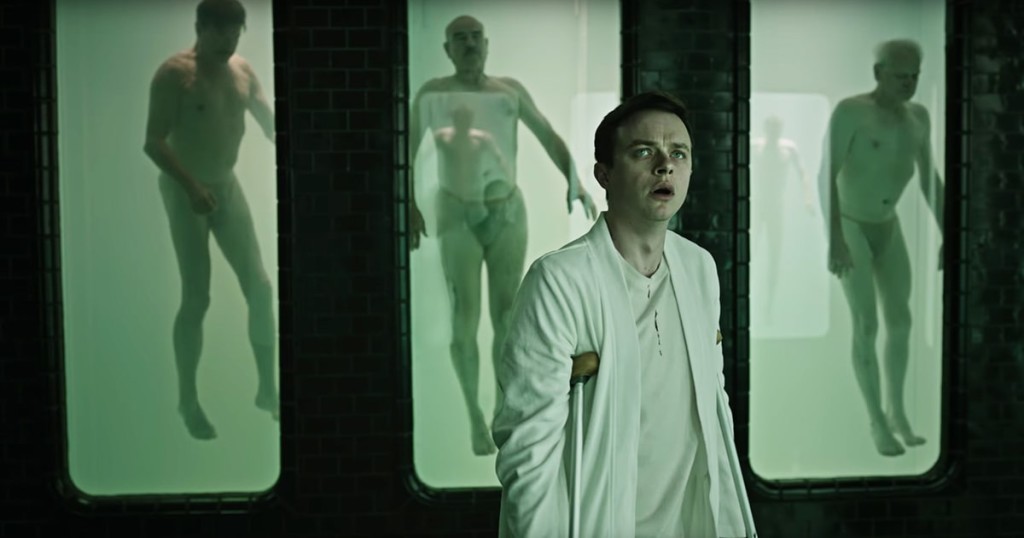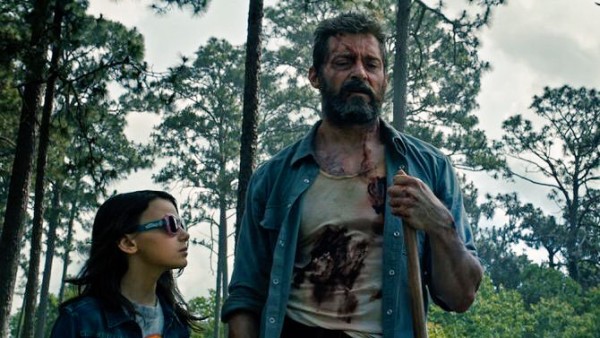This has been a strange year at the box office. Did you know that the number 1 comedy of the year so far is the geriatric knee-slapper, Going in Style? Which has made 43 million dollars?
Surefire hits like Pirates of the Caribbean have imploded. Dusty superheroes like Wolverine have come back to life. And mega-franchises like Fast and Furious are doing two-thirds of the local business they used to, with studios not giving a shit since all they care about now is global.
Now, if we’re being honest, none of these movies I’ve mentioned affect you, the screenwriter reading this website. The writers who write these films have fought their way up a Game of Thrones like ladder that, hopefully, one day, you’ll find yourself climbing as well.
But right now, all you want to do is get your foot in the door, preferably in as little time as possible. And there are three ways to do that. The first is to write a great script that features either a great concept, an exceptional understanding of character development, or a unique voice, and parlay that into a high Black List showing. This will get you an agent and get your script out to a bunch of people so that everyone knows your name.
The second is to write a spec in one of the big genres (action, adventure, sci-fi), which might get you a starter writing gig on one of the franchises your script is written in. You probably won’t get a credit but you will be working. This is what happened, for example, with Nicole Perlman. She wrote a spec about the Challenger shuttle crash, and that allowed her to get first shot at another “space” gig, Guardians of the Galaxy (Perlman did manage to get that credit and is now scripting Captain Marvel).
Finally, there’s the third – and fastest – way to break in. Write a horror spec and direct it yourself. This is, by far, the quickest way for a screenwriter to get into the industry. I’ve seen it time and time again. The Duffer Brothers, the guys who did Stranger Things? Their breakout spec was a horror flick called “Hidden” that they directed right before the now famous Netflix show.
Even if directing doesn’t interest you, consider making it interest you. It’s so freaking cheap to make a movie these days. It’s still relatively expensive, I guess. But if the wannabe writer-directors of the 90s who had to scrape together a million bucks to shoot a film on 16mm time-traveled to today and saw how cheaply we could make a good-looking feature film? They would scold us for the excuses we make not to.
All of this is somewhat roundabout to today’s article focus. But I promise it will come together at the end. In regards to writing horror films, there were two horror films this year that took big risks, each coming at the genre in a unique way. One of those went on to become one of the most profitable films in history. The other didn’t even make it to its second weekend. And I want to discuss why one sailed and the other failed, despite the fact that both scripts were good.
The surprise hit was Get Out (script review), which has currently grossed 175 million dollars.
The unfortunate dud was A Cure For Wellness (script review), which made 8 million dollars.
Here’s another shocker. A Cure For Wellness was directed by a 20 year veteran director who had helmed some of the biggest movies in Hollywood. And Get Out was directed by someone who had never directed in his life. Not even a short movie.
Both of these projects did what I tell you guys to do: Find a fresh angle into a genre. The horror genre has ghosts, zombies, vampires, torture porn, contained horror, and they play those cards over and over again. What are you going to do that makes the genre feel fresh?
A Cure For Wellness is about a businessman who goes to a faraway bizarre treatment center to retrieve a co-worker for the company and gets stuck there. Get Out is about a black man who goes to meet his white girlfriend’s parents for the first time. As you can see, the stories share some DNA. Hell, they even both have a scene where a car hits a deer (seriously, screenwriters, please stop writing this scene).
So why is it that 20 times as many people chose to see Get Out as did A Cure For Wellness? Don’t give me the cheat answer. “A Cure For Wellness looked dumb, Carson. Get Out looked good.” One of your jobs as a screenwriter is to understand SPECIFICALLY why movies do well and why they fail, so that you can use that knowledge to make a more informed decision when coming up with your next concept.
The number 1 screenwriting mistake I see, by far, is misconceived concepts. Concepts that aren’t movies but that screenwriters, for some reason, think are movies. You guys see a few of them every Saturday on Amateur Offerings. So the large majority of you reading this have made far worse miscalculations on your concepts than A Cure For Wellness. Why is Get Out the better concept? Why is it that when people saw the Get Out trailer, they wanted to see the movie whereas when they saw the A Cure For Wellness trailer, they didn’t?
I’ll give you a hint. There’s one other film this year that defied expectations in a big way. Logan. The Wolverine franchise was dead. The movies sucked. No one was showing up anymore. Then Logan comes out and does 100 million more than the last film off a much smaller budget. How did it accomplish this? What did it do differently? Think…
The answer, if you guys haven’t figured it out yet, is that Get Out focused on character. A Cure For Wellness focused on plot. When you watch the Get Out trailer, you see a human situation, a loving but difficult relationship, then later that relationship in danger. When you watch A Cure For Wellness’s trailer, there’s a wall between you and the characters. Hell, you don’t even know the main character after you’ve finished the trailer. You see his face. You know he has to get somebody. But you don’t know anything about him. Therefore you don’t care about him. Therefore you have no interest putting up your hard-earned money to find out if he succeeds or not.
I said I’d get to the point eventually so I will. If you want to break in as a screenwriter – the fastest way to do it is to write a horror spec EXPLORING THE HUMAN CONDITION IN SOME WAY and then direct it yourself. Plot is important. But audiences don’t connect with plot. They connect with people who experience the same life problems that they do. Which brings us right back to yesterday. Vivien is such a dark script. It has its own challenges in drawing an audience but that is exactly the kind of chance you should be taking. Not writing some silly horror movie. Write a horror movie where you’re deeply exploring people and the human condition. This is how you connect with audiences.
Now there’s a caveat to this. You have to understand how to do good character work. You can’t just show two people in a relationship have a fight and think you’ve done your job. You have to find a theme, you have to create conflict within the characters (Am I good enough for this girl?), conflict within the key relationship (race), characters have to arc. That stuff takes practice. But once you understand this stuff, you become a screenwriting superhero. You can now do things that 99.999999% of the population cannot. So that’s my advice to you guys today.
But ONLY if you want to get into this business quickly.
Write a horror spec EXPLORING THE HUMAN CONDITION IN SOME WAY and then direct it yourself.
Good luck!
Genre: Horror
Premise: A young husband feels that his marriage is slipping away. But he has no idea how bad it’s about to get.
About: Today’s script comes from one of my favorite screenwriters, Brian Duffield. I’ve reviewed all of Duffield’s scripts except for two, today’s script being one of those final two. My favorite script of his is Monster Problems, which is in my Top 25. And the script of his that is the closest to production is The Babysitter (about a babysitter from hell), which some have argued is Duffield’s weakest script. Vivien is one of the scripts that first put Duffield on Hollywood’s radar.
Writer: Brian Duffield
Details: 102 pages
Been saving this one for when I needed a pick-me-up.
Yesterday’s script left me with such a bored taste in my mouth, I needed a script I knew I was going to like – something weird and unexpected. That was my issue with Mr. Toy. It was just so… rote. You knew everything that was going to happen 30 pages before it happened, because the script never set a precedent for surprising you.
What do we say here? The enemy of entertainment is predictability. As soon as your story becomes predictable, you’ve lost your audience.
I went into this one completely cold. All I knew about it was the title. So let’s find out what it’s about together!
Tom and Vivien have been married for awhile, though like a lot of the details in this story, we’re not given exact numbers. What we do know is that Vivien is drifting away from Tom. He knows this. Somewhere, deep inside, he knows she’s fucking their neighbor, Charlie.
And so he’s gotten used to the fact that Vivien has stopped laughing at his jokes, that she now sleeps facing away from him, that in the tiny moments when he tries to make her jealous so she’ll notice him, she’ll notice but won’t care. That she’s, for all intents and purposes, checked out of this marriage.
“Vivien Hasn’t Been Herself Lately” then asks the question: What if that were the best case scenario?
When Vivien starts walking on walls, Tom knows that his life has taken a turn for the worse. When she starts biting off her own fingers, he knows shit is getting bad. And when she starts beating Tom up mercilessly, he knows that his life has changed forever.
Vivien, Tom quickly learns, is possessed.
But, you see, Tom refuses to leave her. He tells the million plus demons who have now taken residence inside her body this. That he loves Vivien so much, he will stay until he finds a way to get them out of her.
And boy is he tested on that. Vivien does everything in her power to get Tom to kill her, kill himself, or leave forever. One day, she chokes Tom out until he comes to again, then repeats the process. Over and over and over again. For 24 straight hours. And still Tom won’t leave. He keeps probing, keeps trying to figure out how to save his wife.
Unfortunately, as we move through the story, and we experience just how dark things get in this home, we realize that this isn’t your average exorcism script. And that it’s very unlikely that there’s going to be a happy ending.
Wow.
I haven’t said that in a long time after reading a script.
This script was… wow.
I mean, holy shit. That had to be one of the most intense reads I’ve ever experienced. I’m still processing it. It’s basically about the person you love more than anything actively hating you every day for months on end.
It’s relentless. To the point where I had to stand up a couple of times and walk around just to assure myself that there was still good in the world.
But to this script’s credit, I couldn’t stay away for long. I had to sit down and find out what happened next.
I’m trying to get myself into the headspace where I can help you guys learn some screenwriting tips from this screenplay since it was so affecting. But I’m just not there. And that’s probably the biggest compliment I can give a script. It pulled me in so much, I wasn’t even thinking about screenwriting.
Or maybe I was abstractly. I know I’d catch myself thinking, “Holy shit is this brave. Holy shit is this unique. Holy shit nothing in this script is happening when it’s supposed to.” I mean, this is a possession movie and the exorcist shows up on page 17. Page 17! Most writers would’ve drawn the story out before bringing the exorcist in, padding the script until page 50 or 60. Our exorcists (plural) run away on page 20 here. I’m looking at this script going, “What the hell is he going to do now for 82 pages???”
And what he does is he turns this into a character piece. This is about – at least in my opinion – how difficult marriage is. It’s that things don’t go swimmingly all the time. And there are going to be periods where shit gets really bad. And you’re going to want to run away. And so despite the relentless negativity that is hurled at the reader throughout this story, it’s ultimately about a man who’s so in love with his wife, that he will stay with her at her worst.
But if that’s all the script offered, I don’t know if it would have been enough for me. It was the choices that Duffield took that really wowed me. Remember – writing is about making bold unexpected choices. Not all the time. Some of your choices have to be familiar. But every once in awhile, you have to be bold. Yesterday’s script didn’t have a single bold choice. Not one. Thats why it was so boring.
Here, for example, one of the surprising sequences was that Tom and these demons actually developed a relationship of their own – separate from Vivien. It’s a fucked up relationship where one second they’ll be laughing together and the next “Vivien” will hurl Tom against the wall, breaking his arm. But it’s so unexpected and weird that it adds to, easily, the strangest character piece I’ve ever read.
And on top of that is Duffield’s voice (‘Voice and Choice’ should be the new mantra I endorse here). He’s one of the best screenwriters, hands down, at painting a picture with as few words as possible. On the very first page, we get this line: “Their socked feet touch.” Not “their feet touch,” which is what 99 out of 100 screenwriters would’ve written. But their “socked” feet. That one word turns a cliche into a verifiable image that you can imagine. And once you’re imagining, you’re no longer outside. You’re inside the story.
On top of that, this is the kind of stuff writers should be writing to start their careers. You want to write stories with 2-3 characters that are cheap but that have a hook to them. And because 99% of writers who take this route go the “cliche contained thriller” path, trapping a few characters in a room with danger outside (Cloverfield Lane, for example), if you’re the 1% that can do this without using that trope, you have a great opportunity to stand out. And if you have any directing aspirations whatsoever, try to direct that script yourself. Because you’ll get your career moving a million times faster by directing your own script than you will waiting for someone else to direct it.
I have nothing but praise for this screenplay. It’s not easy to read. In fact, it might be one of the hardest reads you’ll have all year. But it’s hard for the right reasons. It’s hard because you want these two to end up together so badly but you have to go through so much pain to find out if they’re going to.
This was really good. And a new TOP 25!!!
[ ] What the hell did I just read?
[ ] wasn’t for me
[ ] worth the read
[x] impressive (NEW TOP 25!!!)
[ ] genius
What I learned: If you want to write about a relationship, don’t literally write about a relationship. Find a metaphor for the relationship, something with a hook, and write about that. To use Vivien as an example, if the original intent was to write about a troubled marriage, writing about a literal trouble marriage will put people to sleep. By using this possession as a metaphor, you’ve all of a sudden got a clever hook, and your movie can now be marketed.
What I learned 2: Be brave and write about the things you’re scared to admit to anyone in real life. Your scripts and your novels are the places where you have to let that stuff out. And the more honest you are, the more the reader is going to connect with your story.
Genre: Biopic
Premise: (from Black List) The true story of Marvin Glass, brilliant, charismatic, self-loathing, paranoid, demanding – and probably the greatest toy inventor of all time.
About: Mr. Toy finished on the low end of last year’s Black List. Chai Hecht made the Black List before in 2014, with his script, “In Real Time,” about a brother’s attempt to save his suicidal’s sister’s life by recreating her high school prom. I didn’t love that script, but it’s good to see that Hecht is still churning out material. Remember, you have to keep creating content. You never know which of your ideas is going to be the one that people fall in love with. Dan Brown wrote three books (all of which sold less than 10,000 copies) before he wrote The DaVinci Code, which sold 80 million copies.
Writer: Chai Hecht
Details: 111 pages
Memorial Day Weekend is usually a time of reflection. Which it definitely was for two studios this weekend, Disney and Paramount, as their films, “Pirates” and “Baywatch,” drowned under the weight of their seafaring subject matter, leaving the presidents who greenlit them scratching the red, white, and blue off their heads.
Baywatch’s failure was the more obvious of the two. Don’t studios know that audiences no longer buy cheesy old shows repurposed into comedy features anymore? The oddest thing about Baywatch is whoever decided to approve its R rating. The original Baywatch was harmless fun. Why alienate millions of dollars of potential business for what I’m guessing is access to a few more swear words? Not that Baywatch was going to be a hit at PG-13, but I guarantee it would’ve made more money.
The new Pirates had a fun trailer, but this franchise has run out of peg-legs. I believe audiences are fine with studios and their money-hoarding ways AS LONG AS EVERYONE IS COMMITTED TO MAKING A GREAT FILM. The second we feel like you don’t care anymore? That’s when we don’t care anymore. And that’s what’s happened to Pirates.
Speaking of franchises, the biopic has turned into its own franchise – a never-ending train of biographies on a one-way track to Oscar Nomi-station. But with so many lives being documented, it’s become harder and harder to stand out. Let’s see if a toy-maker can locate the genre’s secret sauce.
Marvin Glass grew up in my wonderful home state of Illinois in the 1920s and had the unfortunate luck of being born to the worst father in existence, a verbally abusive man, who, when he discovered that Marvin had a talent for making toys, made it clear to him that men don’t make toys.
Perhaps that explains why, when Marvin graduated from college, he decided to become a painter. And he was pretty good at it, if not good enough to sell anything yet. Painting is where he met his wife, Dorothy, who was a model in one of his classes, and the two quickly had a child, a girl.
With the pressure to provide, Marvin was forced into the toy-making business, where he quickly built that famous wind-up “chattering teeth” toy, choosing to take a quick 400 bucks rather than hold on to the licensing rights. Marvin thought nothing of the deal. But when the item became one of the hottest selling toys ever, it would teach Marvin a valuable lesson. It’s better to play the long game than the short one.
This led to Marvin pioneering a way to sell toys that had never been done before – inventor royalties. He would sell the toy rights to the big companies then take a cut in perpetuity (I learned that word on Shark Tank!).
After someone stole one of Marvin’s idea, Marvin became obsessed with secrecy – turning into the Christopher Nolan of the toy industry. He built a fortress, blacked out the windows, and changed all the locks in his building every three weeks. He then introduced another new concept into the business – an NDA. His customers were not allowed to see his prototypes without first signing a waiver saying they wouldn’t steal his idea.
Throughout all of this, Marvin became insufferable, an asshole, and obsessed with making as much money as possible, ironic since he started out his career hating money. It was argued that Marvin hated his life so much (he’s famously quoted as saying: “I consider myself a complete and utter failure.”) because he pursued a profession he despised. Which, I guess, is the lesson of this story? Although there’s so much going on in Mr. Toy, I can’t be sure of that.
Let’s go over our “What Your Biopic Needs to Be Great” checklist.
1) Fascinating subject – If you don’t have this, don’t bother writing a biopic. That means someone who’s unique or strange or fucked up or had an incredibly complex life, good or bad (preferably both). Look at the biopic about the DHL guy. After he died, they found out he’d had basically been a pedophile all his life who had impregnated numerous young girls. That’s as fucked up as it gets.
2) A great character – More than any other genre, character exploration in a biopic has to be on point. That means inner conflict. It means a clearly defined flaw. It means vices (alcohol, drugs, women). Irony is strongly rewarded (a comedian suffering from depression). These movies are about exploring the inner life as much as the outer.
3) A fresh angle – A fresh angle in the biopic department pretty much means anything besides a linear cradle-to-grave story, as that’s the most obvious route one can go. Predictability is the enemy of all great movies. And there’s nothing more predictable than going cradle-to-grave in a biopic.
4) A great story – Just like non-biopics, a biopic needs to have a great story. It can’t just be a checklist of scenes that occurred during someone’s life. You should try and add GSU. You should try and add three acts. There should be compelling revelations, unexpected developments, drama, suspense, and, overall, a story that’s interesting. For whatever reason, biopics want to be boring. Their nature is to be the script version of someone’s Wikipedia page. So you have to work against that to find your story.
How does Mr. Toy stack up in all these areas? Let’s take a look.
FASCINATING SUBJECT
Mr. Toy is interesting in that he hates toys and he hates what he does, despite being so good at it. But I wouldn’t call him fascinating. His biggest career achievement seems to be pioneering royalties for toy makers. Unfortunately, numbers on a spreadsheet don’t translate well into film. Nobody’s pining for a scene where Marvin negotiates an extra percentage point on his deal.
A GREAT CHARACTER
There was a lot going on with Marvin for sure. He hated toys. He hated money. Yet he still focused on those things above his own flesh and blood, as his wife left him and his daughter despised him. However, this complexity was often more confusing than compelling. I couldn’t figure out why a man who hated money so much wanted it so badly. There was never a moment that linked those two conflicting ideologies together. By the end of the script, he’s trying to live like Hugh Hefner, yet he says numerous times he hates money and everything it represents.
A FRESH ANGLE
This was a straight cradle to grave biopic, so no freshness involved. The great thing about a fresh angle is that it can hide a lot of a script’s imperfections. Fresh takes are becoming harder and harder to find in this genre since it’s so crowded. But you have to be inventive. Arron Sorkin built Steve Jobs around three major product launches. It can be done.
STORY
There didn’t seem to be a structure here, so the script wandered for awhile as we got to know Marvin over the early part of his career. The script picked up, however, when Hecht added a goal – Marvin needed to come up with a new toy or lose his floundering company. All of a sudden, we had a goal, we had stakes, we had urgency. But above all, we had structure. The problem? This didn’t happen until page 70. Had we introduced some sort of plot earlier, Mr. Toy would’ve been a lot more focused.
This is the thing with biopics. Since they don’t naturally fit into the 3-Act structure, writers try to wing it. Just fill up the space with the person’s life and everything else will sort itself out. But storytelling doesn’t work that way. It needs a series of destinations to keep the story on track. And I couldn’t ever figure out where this one wanted to go.
I wanted to like it. There is something deliciously ironic about adults who make toys. But Mr. Toy never got there for me.
[ ] What the hell did I just read?
[x] wasn’t for me
[ ] worth the read
[ ] impressive
[ ] genius
What I learned: To find a fresh angle for your biopic, look for inspiration within the character himself. For example, if you’re documenting a cartoonist, tell the entire story inside one of his cartoons. If you’re documenting someone who died of Alzheimer’s, tell the story out of order, the way they remember things. If you’re documenting a famous silent film actor, write a silent film. Just don’t write cradle-to-grave unless the life perfectly fits into the 3-Act structure and is amazing as is. Or – OR! – do write a 3-act structure if you’re documenting a famous screenwriter. And have the screenwriter admit to the audience that he knows you hate cradle-to-grave biopics but he’s going to tell you one anyway. Have fun with it. But always, above all else, be creative.
Memorial Day Weekend Consultation Deal!!! – Got a script that needs help? Tired of getting notes from friends like, “What does ‘EXT.’ mean?” Let me do what I do best: Break down your script, figure out what’s wrong with it, and tell you how to fix it. If you purchase notes from me this weekend, I’m offering $150 off feature consultations and $100 off pilot consultations. Just e-mail me at Carsonreeves1@gmail.com with the subject line, “MEMORIAL DAY.” You don’t need to send your script to me right away. You only need to purchase the notes by weekend’s end. That would be MONDAY 11:59pm Pacific Time!
Now, it’s time for everyone’s favorite screenwriting battle royale. The Hunger Games ain’t got nothing on Amateur Offerings. Kids may die in that sport. But here, screenwriting dreams die, which everyone knows is way worse. The good news is, one script will rise from the ashes, win the weekend, and get a Scriptshadow review next Friday. If the script is reviewed well, industry people usually notice. And if a script is awesome, I can guarantee something will come of it. So, let’s look at this week’s contenders!
If you’re new to Amateur Offerings, read as much of each script as possible then VOTE for your favorite in the comments section. This is also a wonderful opportunity to give writers feedback so they can get better. So feel free to let writers know, constructively, where you had troubles with their scripts and why.
Voting is open UNTIL MONDAY NIGHT on this one, all the way through the holiday weekend. I’ll be back with a script review on Tuesday. GOOD LUCK!
Title: No Other Way
Genre: Action/Thriller
Logline: When his girlfriend and daughter are mistakenly slaughtered by a gang of Neo-Nazis, an ordinary, stay home dad with no particular set of skills, goes on a mission of revenge.
Why You Should Read: In an attempt to improve my skills as a writer, I put the high concept ideas on hold for a while and decided it was best to write a script with a simple concept while trying to make it as readable and exciting as possible. This meant a fast paced story with short, high intensity scenes, good characters and an appropriate amount of risk taking where the average writer wouldn’t. In this vein, I think what I have managed to produce is a tight action/thriller with a enough uniqueness to keep you reading until the end… enjoy :)
Title: Know Thy Neighbor
Genre: Thriller
Logline: While on vacation, a recently divorced psychologist sees his attractive new neighbor on a missing poster, but instead of turning her in, he conducts his own investigation into her mysterious past and endangers both their lives.
Why You Should Read: They say always be open to concepts from anywhere in your daily life. The idea for this Hitchcockian thriller hit me while waiting in a very long line at the post office. There was a row of missing posters on the wall. Out of the corner of my eye, I thought I recognized one of the victims, but I was wrong. For days, I wondered what it would be like to see a new friend on a missing poster. What would I do? Would I turn them in? Confront them myself? Or watch them from afar and try to unravel their secret? The idea stayed with me for months until I created an outline and wrote the script. Long live AOW!
Title: Bend
Genre: Gritty Action/Superhero/Revenge
Logline: An aspiring reporter manipulates a seemingly indestructible vigilante into becoming a superheroine in order to stop the Russian mafia from selling a Cold War nerve agent to a megalomaniac.
Why You Should Read: Hello, with all the regurgitation of superhero movies these days, I took a stab at some different angles with the intent to create a new, adult, superhero IP. Please consider giving my project a shot at a review. Thank you Carson and of course, the SS community, for all of your valuable feedback over the years.
Title: PYRO
Genre: Thriller
Logline: In the midst of a deadly bushfire season, a petty criminal with a fascination for fire becomes entangled in a game of cat and mouse with a desperate arson squad detective while attempting to save his one, true friend.
Why You Should Read: The Black Saturday bushfires occurred in my home state of Victoria, Australia in 2009 and killed 173 people. It was Australia’s deadliest natural disaster and I still distinctly remember the atmosphere on that day – you could actually feel the death in the air. I’ve often been drawn to thinking about the people involved that day – both those fighting and investigating the blazes and the pyromaniacs who helped exacerbate them. While this story is set a little while later, the memories of that day remain an inspiration.
Title: OASIS
Genre: Horror
Logline: A scientist desperate to kill the elusive desert monster that maimed him, needs it to eat an unwitting team of soldiers, scientists and college students he embedded with tracking devices before it disappears for another seven years.
Why You Should Read: I love this script. It reminds me of the fun I had watching Creature Feature Saturdays. After winning the TableReadMyScreenplay Horror competition it’s just been parked on my laptop. What else do I need to do to get a production company to Green Light it? The Scriptshadow following may have the answers. Thank you in advance. I look forward to your notes and insight.
Genre: Horror
Logline (from writer): A home-invading female serial killer stalks a true crime author whom she wants to write her bloody life story.
Why You Should Read (from writer): The most famous home invader in all of fairy tale history has never gotten her own movie. This is a modern take on one of the most globally recognized public domain characters that Hollywood hasn’t cracked. The script was a Finalist in two screenwriting contests: Fresh Blood Selects & Search for New Blood 3. For this new Amateur Friday draft, I took the AOW notes to heart and trimmed down the opening pages and minimized the early voiceover.
Writer: Brett Martin
Details: 99 pages (note: This is a new draft that was sent to me tonight! So it’s hot off the presses and different from the drafts you guys read on Amateur Offerings).
Today’s Amateur Offerings winner got a big reaction out of me.
At times I was impressed. Other times I was angry. Sometimes I was intrigued. A number of times I was disgusted. A lot of times I was frustrated.
Whichever way you look at it, I was feeing something while reading this.
The important question, however, is “Was the ultimate feeling a good one?” And I’m still not sure I know the answer to that. Because there were times where I felt this script was more about the writer than it was about the story being told. It felt like Brett so badly wanted to put his mark on this that the story may have ended up playing second fiddle.
Despite that opinion, the script definitely has a voice. It doesn’t fall victim to the “Seventy-Five Percenters” curse, which is a term I use to describe the 75% of scripts I read that are so average, I forget about them the second I put them down. Goldie does what a script should do – it makes you remember it.
But remember it how?
The plot follows our title character, Goldie, a 20-something hot blonde who likes to murder families in her spare time, particularly units with a mom, dad, and blonde daughter. So, suffice it to say, she has issues.
Goldie’s latest obsession is a woman named Sara Berenson, the author of a best seller who’s reached a bout of writer’s block so crippling that she hasn’t written a word in months. Sara likes to do the Stephen King thing, leaving her family in the city while she writes at a remote cottage. And right now, she’s up there trying (and failing) to force out her next masterpiece.
Goldie google maps Sara, pitches a tent in the forest, and starts watching her from afar, learning her routine and looking for a way to integrate herself into Sara’s life. She finds a local hunter, Peter, and pays him to scare Sara while she’s out riding her bike. Then, just before Peter and his buddies can “hurt” Sara, Goldie comes swooping in and “saves” her.
Once back at Sara’s place, Goldie admits she knows Sara is a best-selling novelist and came up to these parts looking for her. Sara is predictably creeped out, but this Goldie girl did save her, so she allows her to stick around. Eventually, Goldie pitches a book to Sara about a young woman who goes around killing families.
For reasons that remain unclear, Sara doesn’t consider the possibility that the creepy weird fan who admitted she stalked her up into the woods might be the very psychopath Goldie’s “story” is about.
In the interim, the girls must fend off a slew of horny men who include Sara’s secret lover, Rick, and Peter’s hunting buddies. Rest assured, there is a lot of bloody slaughtering that goes on. All of which needs to be taken care of before Sara’s family comes to visit and she can finally finish this book and move on.
Brett’s done something I’ve been telling everyone to consider – take the fairy tale genre and flip it on its head. Now, to be honest, this isn’t what I imagined when I said that. But maybe that’s a good thing. If it’s what I expected, then the idea probably isn’t fresh enough.
Brett also takes a lot of chances here. I mean, things get weird. We’ve got a fairy tale heroine who masturbates to photos of happy families. And that’s just the appetizer. I’m not surprised at all that this kicked ass in a couple of horror screenwriting contests. The writing is bold and strong.
With that said, a couple of issues kept popping up while I was reading. The biggest of which was that the writing felt like it was trying too hard. This script became more about shocking you than it did about telling a good story.
The family photo masturbation is one example. There’s also a moment where Goldie breaks the fourth wall and tells us she’s going to kill us if we tell anyone her secret. There’s a moment where we inhabit the body of someone Goldie brutally slaughters. There’s a moment where Sara, who, up until that point was, at worst, a cheater, becomes sexually turned on when she sees Goldie torturing a man to death.
I just felt like the writer was asking the question: How can I best shock the audience in this moment? Rather than: How can I milk the most drama out of this sequence? How can I illicit the most emotion out of this scene?
Remember that shock is just that – shock. It lasts for a second then it’s gone. So it’s not a great screenwriting tool to utilize. As a screenwriter, you want to look for tools that keep the reader’s interest over an extended period of time. That’s why suspense is such a great concept to learn. You can use it to draw a reader in over 20-30 pages if you do it right.
Another thing I had an issue with was that the characters didn’t act like real people. They acted like movie characters.
I’ll give you a couple of examples. Why would Goldie immediately tell Sara that she knows who she is and drove out into the wilderness to find her? You’ve just put your “target” on Terrorist Threat Alert Level 10. You might as well have worn a shirt that said, “I’m a crazy stalker who might kill you.” It would’ve made a lot more sense for Goldie to feign ignorance about who Sara was, then work her scheme in once she gained Sara’s trust.
As for Sara, I repeatedly asked why she was allowing this girl who was clearly a psychopath to stay with her. Goldie would scream at Sara, threaten her family, tell Sara she wished she had been gang-raped by Peter and his friends. Yet one scene later, Sara would be allowing Goldie back into her good graces.
True, there were times where there were extenuating circumstances (Goldie rushing to Sara’s defense when the man she was having an affair with was trying to rape her) but those scenes were so manufactured (How did Rick go from a casual affair to an obsessed rapist?) that you knew the only reason they were there was to create a scenario by which Sara giving Goldie another chance made sense.
This is something we don’t talk about a lot because these are the nuances of screenwriting and the nuances of screenwriting don’t have fancy names like “inciting incident” or “mid-point twist.” They’re mostly about feel. And where the mistakes are made in “feel” is when the writer wants something to happen so badly that he’s willing to look past a truthful moment in order to get the plot to where he needs it to go.
And that’s the thing that ultimately kept me from investing in this script. It was more about the writer than it was about writing a believable great story.
My advice to Brett, if he wants to write another draft, is to drop the gimmicks and the shocks. Instead, focus on writing a great story. Even if you made that one change of Goldie not telling Sara she knew who she was, you’d have a good 20-30 pages driven entirely by dramatic irony – the fact that we know Goldie is dangerous but Sara does not.
And really get into your characters’ heads and try to be truthful. Don’t write the movie scene. Write what people would really do. Because, right now, the swings in emotion (a character hates another character one second, then four dialogue lines later, they’re best friends again) just aren’t realistic. And the reason for that is you’re not treating these characters like real people. You’re treating them like pawns.
I hope you take all this to heart, Brett. You’re one of the most positive guys out there. And you clearly have talent. It’s just tweaks in the way you approach the writing that are going to pay dividends. Good luck!
Script link: Goldie (newest draft)
[ ] What the hell did I just read?
[x] wasn’t for me
[ ] worth the read
[ ] impressive
[ ] genius
What I learned: One of the biggest problems I notice in the amateur scripts I’ve read lately is writers don’t treat their characters like real people. If a character is about to get shot, they’d rather write a cool move line (“Go ahead, do it”) than ask what that character would really feel and really say in that moment. In other words: THE TRUTH. Look, you have some creative license to massage reality in storytelling. And there are certain projects that are built around being unrealistic. But for the most part, you should look to be truthful. Because the more you manipulate reality to fit your writing agenda, the less we’re going to believe in what’s happening.









